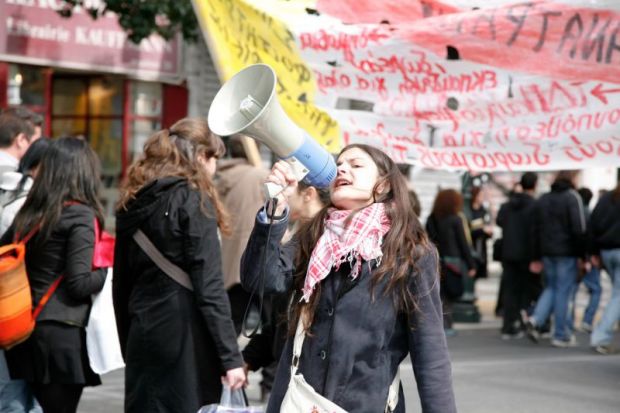US students that identify as “very liberal” are 40 percentage points more likely to support the withdrawal of a guest speaker’s invitation to campus than their “very conservative” peers, a recent study has found.
A survey of 1,250 US students, conducted by YouGov for the Foundation for Individual Rights in Education, found that more than three-quarters of very liberal students (78 per cent), but less than two-fifths of very conservative students (38 per cent), said they support the withdrawal of a guest speaker’s invitation to campus in some cases.
The research also found large discrepancies between respondents’ attitudes to free speech across the political spectrum in other areas.
Almost two-thirds of very liberal students (63 per cent), but less than half of very conservative students (45 per cent) said they thought it was important to be part of a campus community where they are not exposed to intolerant or offensive ideas.
Right-wing students were also much less likely to favour student protests; 28 per cent of Democratic respondents and 60 per cent of Republican students believed that they “shouldn’t have to walk past student protests” on campus.
The research, Speaking Freely: what students think about expression at American colleges, also found that the views of left-wing students were more malleable than those of their right-wing counterparts, with 68 per cent of Democratic and 57 per cent of very liberal students admitting to changing an attitude or opinion after listening to a guest speaker, compared with 55 per cent of Republicans and 45 per cent of very conservative students.
Overall, the majority of respondents (54 per cent) said they had stopped themselves from sharing an idea or opinion at class at some point since beginning college.
Among the reasons for not expressing themselves in the classroom, students most often selected that they thought they might be incorrect or mistaken (53 per cent), that they thought another student might judge them (48 per cent) and that they thought their peers might consider their words offensive (30 per cent).
US students that identified as “very liberal” were 14 percentage points more likely to feel comfortable expressing their opinions in the classroom than their “very conservative” peers, and this gap widened to 21 percentage points when students were asked about the expression of views outside of the classroom but while on campus.




